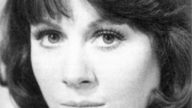Sixty for Sixty enters its top ten phase, if you just happen to have a couple extra digits lying around…
#12 — The Girl in the Fireplace — Steven Moffat’s first real experiment in timey-wimey storytelling told the segmented life story of Madame de Pompadour, whose unusual insight into the Doctor made her a singular character to encounter the Doctor. Did it make a difference that Tennant’s girlfriend at the time. Sophia Myles, added an extra spark to their interplay?. Of course it did.
#11 — The Seeds of Doom — This just might be the grimmest and most violent story that Tom Baker ever had. But with that said, the very, very, last gasp of the extended UNIT era is just compelling, and made all the more so with the weird and quietly unhinged performance of Tony Beckley as Harrison Chase.
#10 — The Eleventh Hour — There’s never been a better first foot forward for a Doctor than Matt Smith got here in this inaugural outing. While the show got an effective reset as the Moffat era dawned, the story used Smith to full effect by showcasing him in full as an overgrown Ivy League wunderkid. Charming with kids, and possessing his own kid-like sense of wonder. It was a bravura introduction.
#9 — The Day of the Doctor — That Doctor Who never had a higher profile than in the lead-up to the 50th Anniversary shouldn’t be a surprise. That Moffat, Smtih, Hurt, Tennant, et. al. delivered on that legacy is something of a minor miracle, and that it played to, and celebrated that legacy is what we remember even 10 years later.
#8 — Genesis of the Daleks — A consequential story from 1975 that has always been very well regarded by fans. And the shadow it cast which has run all the way up to the Peter Capaldi story The Witch’s Familiar in 2015. That’s a 40-year legacy and for one very simple reason, Davros. While the Daleks were of course very well established before Davros was a glint (albeit a desperate glint) in Terry Nation’s eye, the ‘ret-conning’ of Davros into Dalek lore, and the ‘human’ face he put onto the Daleks, not to mention the superlative performance of Michael Wisher, gave the Daleks a more relatable form for prospective Doctor Who writers to plot against. In fact it would be until Dalek in 2005 that the Dalek(s) would prominently feature in a story without the pull of Davros as an anchor.
#7 — Utopia — There are precious few ‘punch-the-air’ moments in Doctor Who, but the revelation that the Master had been surpressed in Derek Jacobi as Professor Yana and his subsquent unleashing brought all of the threads in nu-Who’s best series–3–into sharp relief. Even as part one of a three part story (which most would agree are a letdown after this start), it stands, and shines alone enough for us to rate it very highly.
One more push and then 60 for 60 will be done and dusted.




